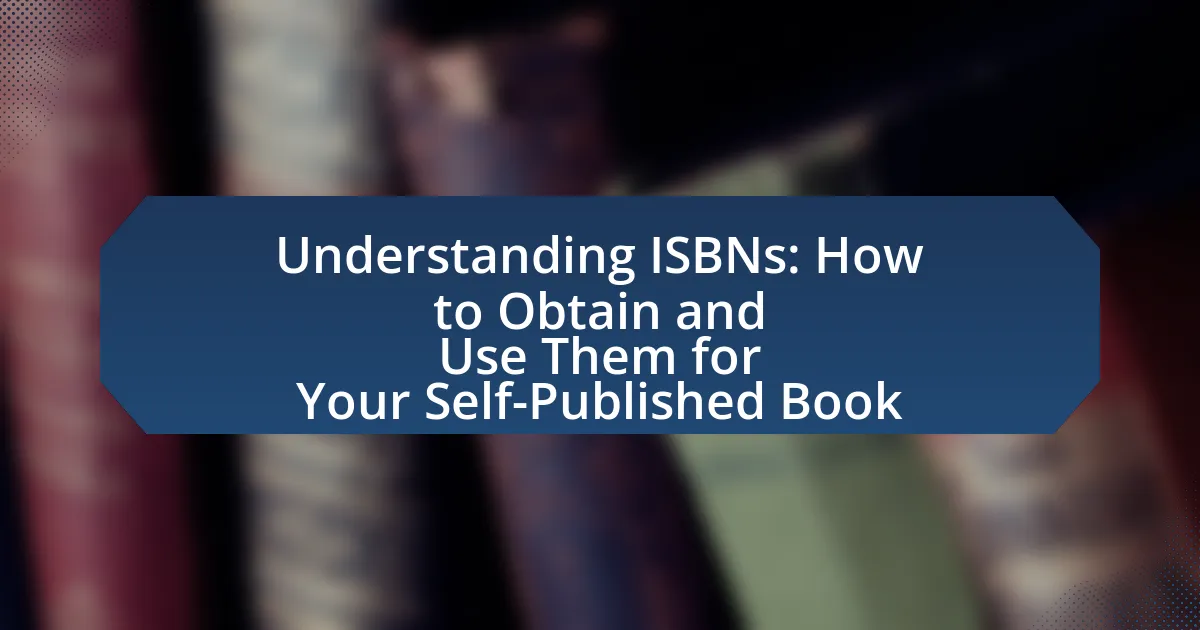Creating an engaging author website is essential for establishing an online presence and connecting with readers. Key elements include a clear author bio, professional design, easy navigation, and dynamic content such as blogs. Personal branding is reflected through unique design choices and content that showcases the author’s voice and expertise. User experience is crucial, with features like intuitive navigation and responsive design enhancing visitor engagement. DIY tools like WordPress, Wix, and Squarespace simplify the website creation process, offering customization options that allow authors to effectively showcase their work and optimize for visibility and engagement.

What are the key elements of an engaging author website?
An engaging author website includes a clear author bio, a professional design, easy navigation, a blog or content section, and a way for readers to subscribe or connect. The author bio establishes credibility and personal connection, while a professional design enhances user experience and reflects the author’s brand. Easy navigation ensures that visitors can find information quickly, and a blog or content section keeps the site dynamic and encourages return visits. Additionally, providing subscription options allows readers to stay updated on new releases and events, fostering a community around the author’s work. These elements collectively contribute to a website that attracts and retains visitors, ultimately supporting the author’s goals.
How can an author website reflect personal branding?
An author website can reflect personal branding by showcasing the author’s unique voice, style, and values through design, content, and user experience. The website should feature personalized elements such as a distinctive logo, color scheme, and typography that align with the author’s genre and personality. Additionally, including a blog or articles that express the author’s insights and expertise helps establish authority and connect with the audience. Engaging visuals, such as professional photographs and book covers, further enhance the brand identity. According to a study by the Content Marketing Institute, 70% of consumers prefer getting to know a company via articles rather than ads, highlighting the importance of content in personal branding.
What design elements contribute to a strong personal brand?
A strong personal brand is significantly influenced by design elements such as a cohesive color palette, typography, logo, and imagery. A cohesive color palette establishes visual consistency, making the brand easily recognizable; for instance, brands like Coca-Cola use red to evoke excitement and energy. Typography plays a crucial role in conveying personality; for example, serif fonts often suggest tradition and reliability, while sans-serif fonts can imply modernity and simplicity. A well-designed logo serves as a visual anchor for the brand, encapsulating its essence in a memorable way, as seen with Nike’s swoosh. Additionally, high-quality imagery that aligns with the brand’s message enhances emotional connection and engagement, as evidenced by successful brands utilizing authentic visuals to resonate with their audience. These design elements collectively create a strong personal brand that communicates values and fosters recognition.
How does content choice impact personal branding on an author website?
Content choice significantly impacts personal branding on an author website by shaping the author’s identity and audience perception. The selection of content, such as blog posts, book excerpts, and multimedia elements, directly influences how potential readers and industry professionals view the author’s expertise and personality. For instance, an author who shares insightful articles on writing techniques establishes credibility and positions themselves as an authority in their field. Additionally, consistent and relevant content fosters engagement, encouraging visitors to return and interact with the website, which enhances brand loyalty. Research indicates that 70% of consumers prefer to learn about a company through articles rather than advertisements, underscoring the importance of strategic content selection in building a strong personal brand.
Why is user experience important for an author website?
User experience is crucial for an author website because it directly influences visitor engagement and retention. A well-designed user experience ensures that visitors can easily navigate the site, find information about the author and their works, and interact with content, which can lead to increased book sales and a loyal readership. Research indicates that 88% of online consumers are less likely to return to a site after a bad experience, highlighting the importance of a positive user experience in maintaining audience interest and fostering a community around the author’s brand.
What features enhance user experience on an author website?
User experience on an author website is enhanced by features such as intuitive navigation, responsive design, engaging content, and interactive elements. Intuitive navigation allows users to easily find information, which is crucial as studies show that 94% of users cite poor navigation as a reason for leaving a website. Responsive design ensures that the website functions well on various devices, accommodating the 52% of global web traffic that comes from mobile devices. Engaging content, including blog posts and multimedia, keeps visitors interested and encourages them to return, as 70% of consumers prefer getting to know a company via articles rather than ads. Interactive elements, such as comment sections and social media integration, foster community engagement, which is vital for building a loyal readership.
How can navigation affect user engagement on the site?
Navigation significantly affects user engagement on a site by influencing how easily users can find information and interact with content. Effective navigation enhances user experience, leading to longer visit durations and increased interaction rates. Research indicates that 38% of users will stop engaging with a website if the content or layout is unattractive, which underscores the importance of intuitive navigation. Furthermore, a study by the Nielsen Norman Group found that users typically leave a site within 10-20 seconds if they cannot find what they are looking for, highlighting that clear and accessible navigation is crucial for retaining user interest and encouraging deeper exploration of the site.
What role does content play in engaging visitors?
Content plays a crucial role in engaging visitors by providing valuable information that meets their needs and interests. Engaging content captures attention, encourages interaction, and fosters a connection between the author and the audience. According to a study by HubSpot, 70% of marketers actively invest in content marketing, highlighting its effectiveness in attracting and retaining visitors. Furthermore, high-quality content can improve search engine rankings, making it easier for potential readers to discover the website. This demonstrates that well-crafted content not only engages visitors but also enhances visibility and accessibility.
What types of content should authors include on their websites?
Authors should include a variety of content types on their websites to engage visitors effectively. Essential content includes a biography that outlines the author’s background and writing journey, a portfolio showcasing published works, and a blog featuring articles or insights related to their writing or genre. Additionally, authors should incorporate a contact page for reader interaction, links to social media profiles for broader engagement, and a newsletter sign-up option to build a mailing list. These elements collectively enhance the author’s online presence and facilitate connections with readers, as evidenced by the fact that websites with diverse content types tend to attract more visitors and retain their interest longer.
How can authors effectively showcase their work online?
Authors can effectively showcase their work online by creating a professional website that highlights their writing portfolio, engages visitors, and provides easy access to their publications. A well-designed author website serves as a central hub for showcasing books, articles, and other written content, allowing authors to present their work in an organized manner. According to a survey by the Author’s Guild, 70% of readers prefer to learn about authors through their websites, emphasizing the importance of having an online presence. Additionally, incorporating features such as a blog, social media links, and email newsletters can enhance engagement and foster a community around the author’s work.

What DIY tools are available for creating an author website?
DIY tools available for creating an author website include website builders like WordPress, Wix, and Squarespace. WordPress powers over 40% of all websites globally, offering customizable themes and plugins specifically designed for authors. Wix provides an intuitive drag-and-drop interface, making it easy for users without coding skills to create visually appealing sites. Squarespace is known for its sleek templates and built-in e-commerce features, allowing authors to sell books directly from their websites. These platforms enable authors to establish an online presence efficiently and effectively.
How do website builders simplify the website creation process?
Website builders simplify the website creation process by providing user-friendly interfaces and pre-designed templates that eliminate the need for coding skills. These platforms allow users to drag and drop elements, making it easy to customize layouts and features without technical expertise. According to a study by Statista, as of 2021, over 50% of websites were built using website builders, highlighting their popularity and effectiveness in streamlining the creation process. Additionally, website builders often include integrated hosting and domain registration, further reducing the complexity involved in launching a website.
What are the most popular website builders for authors?
The most popular website builders for authors are WordPress, Wix, Squarespace, and Weebly. WordPress is widely favored due to its extensive customization options and a vast library of plugins, making it suitable for authors who want to create a unique online presence. Wix offers user-friendly drag-and-drop functionality, allowing authors to design visually appealing websites without technical skills. Squarespace is known for its elegant templates and built-in e-commerce features, which are beneficial for authors looking to sell books directly. Weebly provides a straightforward interface and essential features for authors to showcase their work effectively. These platforms are chosen by authors for their ease of use, flexibility, and ability to create professional-looking websites.
How do these tools compare in terms of features and ease of use?
The tools for creating an engaging author website vary significantly in features and ease of use. For instance, platforms like WordPress offer extensive customization options and a wide range of plugins, making them feature-rich but potentially complex for beginners. In contrast, website builders like Wix and Squarespace provide user-friendly drag-and-drop interfaces, simplifying the design process but with more limited customization capabilities. According to a 2023 survey by Website Builder Expert, 70% of users prefer the ease of use of drag-and-drop builders over more complex platforms, indicating a strong preference for simplicity among non-technical users.
What are the benefits of using DIY tools for website creation?
Using DIY tools for website creation offers several benefits, including cost-effectiveness, ease of use, and customization options. These tools typically eliminate the need for hiring professional developers, allowing individuals to create websites at a fraction of the cost. For instance, platforms like WordPress and Wix provide user-friendly interfaces that enable users to design and launch websites without extensive technical skills. Additionally, DIY tools often come with a variety of templates and plugins, allowing for personalized designs that cater to specific needs and preferences. According to a survey by Clutch, 30% of small businesses use DIY website builders, highlighting their popularity and effectiveness in empowering users to establish an online presence independently.
How can DIY tools save time and money for authors?
DIY tools can save time and money for authors by providing user-friendly platforms that streamline the website creation process without the need for professional web developers. These tools often include templates, drag-and-drop features, and integrated hosting services, which reduce the time spent on design and technical setup. For instance, platforms like WordPress and Wix allow authors to launch their websites quickly, often within hours, compared to the weeks it might take to hire a developer. Additionally, DIY tools typically have lower upfront costs, with many offering free or low-cost plans, which can significantly decrease the financial burden associated with website development. This combination of efficiency and cost-effectiveness makes DIY tools an attractive option for authors looking to establish their online presence.
What level of technical skill is required to use these tools?
The level of technical skill required to use DIY tools for creating an engaging author website is generally low to moderate. Most DIY website builders, such as WordPress, Wix, and Squarespace, are designed for users with little to no coding experience, offering intuitive drag-and-drop interfaces and customizable templates. According to a survey by Website Builder Expert, 70% of users reported that they could create a website without any prior technical knowledge. This accessibility allows authors to focus on content creation rather than technical complexities.
What customization options do DIY tools offer?
DIY tools offer a variety of customization options, including templates, design elements, and functionality features. Users can select from pre-designed templates that cater to different aesthetics and purposes, allowing for personalized branding. Additionally, DIY tools often provide options to modify colors, fonts, and layouts, enabling authors to create a unique visual identity. Functionality features such as plugins or widgets can be added to enhance user experience, including social media integration, contact forms, and e-commerce capabilities. These customization options empower authors to tailor their websites to meet specific needs and preferences, ensuring a more engaging online presence.
How can authors personalize their websites using DIY tools?
Authors can personalize their websites using DIY tools by utilizing website builders like WordPress, Wix, or Squarespace, which offer customizable templates and drag-and-drop features. These platforms allow authors to modify layouts, colors, fonts, and images to reflect their unique brand and style. For instance, WordPress provides plugins that enable authors to add features such as contact forms, social media integration, and e-commerce capabilities, enhancing user engagement. Additionally, authors can incorporate personal elements like blog sections, book showcases, and multimedia content to create a more interactive experience for visitors.
What are the limitations of customization with DIY website builders?
DIY website builders have significant limitations in customization, primarily due to their template-based design and restricted access to underlying code. Users often face constraints in modifying layout, functionality, and design elements beyond what the platform allows, which can hinder the unique branding and user experience desired for an author website. For instance, many DIY builders do not permit custom CSS or JavaScript, limiting advanced design options and interactivity. Additionally, the reliance on pre-designed templates can result in a lack of originality, as multiple users may end up with similar-looking websites. These limitations can affect the overall effectiveness of the website in engaging visitors and conveying the author’s personal brand.

How can authors optimize their websites for engagement and visibility?
Authors can optimize their websites for engagement and visibility by implementing SEO best practices, enhancing user experience, and utilizing social media integration. SEO best practices include using relevant keywords in titles, headings, and content, which can improve search engine rankings and increase organic traffic. Enhancing user experience involves ensuring fast loading times, mobile responsiveness, and intuitive navigation, which keeps visitors on the site longer and encourages interaction. Social media integration allows authors to share content easily and connect with their audience, further increasing visibility. According to a study by HubSpot, websites that are optimized for mobile devices can see a 50% increase in engagement, demonstrating the importance of these strategies.
What strategies can authors use to improve website traffic?
Authors can improve website traffic by implementing search engine optimization (SEO) techniques, utilizing social media marketing, and creating high-quality content. SEO techniques, such as keyword optimization and backlinking, enhance visibility on search engines, leading to increased organic traffic. Social media marketing allows authors to share their work and engage with readers, driving traffic from platforms like Facebook and Twitter. Additionally, producing high-quality, relevant content encourages visitors to return and share the website, further boosting traffic. According to a HubSpot report, companies that prioritize blogging are 13 times more likely to achieve a positive ROI, demonstrating the effectiveness of content creation in attracting visitors.
How does SEO play a role in increasing website visibility?
SEO significantly enhances website visibility by optimizing content to rank higher in search engine results. This optimization involves using relevant keywords, improving site structure, and enhancing user experience, which collectively increase organic traffic. According to a study by BrightEdge, organic search drives 53% of website traffic, underscoring the importance of SEO in attracting visitors. By implementing effective SEO strategies, websites can achieve better rankings, leading to increased visibility and engagement.
What are effective content marketing strategies for authors?
Effective content marketing strategies for authors include building an author website, utilizing social media, and creating valuable content such as blogs or newsletters. An author website serves as a central hub for showcasing books, sharing updates, and engaging with readers, which can increase visibility and sales. Social media platforms allow authors to connect with their audience, share insights, and promote their work, with 73% of marketers believing that their efforts through social media marketing have been “somewhat effective” or “very effective” for their business (Buffer, 2021). Additionally, producing valuable content, such as informative blog posts or engaging newsletters, can establish authority in the genre and foster a loyal readership, as 61% of consumers are more likely to buy from a brand that provides custom content (Demand Metric, 2016).
How can authors engage with their audience through their website?
Authors can engage with their audience through their website by incorporating interactive features such as blogs, newsletters, and comment sections. These elements allow authors to share insights, updates, and personal stories, fostering a sense of community and encouraging reader feedback. For instance, a blog can provide regular content that invites comments, while a newsletter can keep subscribers informed about new releases and events, enhancing ongoing communication. Research indicates that websites with interactive content see higher visitor retention rates, demonstrating the effectiveness of these engagement strategies.
What interactive features can enhance visitor engagement?
Interactive features that can enhance visitor engagement include comment sections, quizzes, polls, and live chat options. These features encourage visitors to actively participate, fostering a sense of community and connection. For instance, comment sections allow readers to share their thoughts and feedback, while quizzes and polls can make the content more engaging by inviting users to interact with the material. Live chat options provide immediate assistance and create a personal touch, which can significantly increase user satisfaction and retention. Research indicates that websites incorporating interactive elements see a 70% increase in user engagement metrics, demonstrating the effectiveness of these features in capturing visitor interest.
How can authors use newsletters and blogs to connect with readers?
Authors can use newsletters and blogs to connect with readers by providing consistent, valuable content that fosters engagement and builds a community. Newsletters allow authors to share updates, exclusive content, and personal insights directly with subscribers, creating a sense of intimacy and loyalty. Blogs serve as a platform for authors to explore topics in depth, share their writing process, and engage in discussions with readers through comments. Research indicates that 77% of internet users read blogs, highlighting their effectiveness in reaching and connecting with audiences. By utilizing these tools, authors can enhance their visibility, encourage reader interaction, and cultivate a dedicated following.
What are some best practices for maintaining an author website?
To maintain an author website effectively, regularly update content, ensure mobile responsiveness, and optimize for search engines. Regular content updates keep the site fresh and engaging, which can improve visitor retention and search engine rankings. Mobile responsiveness is crucial as over 50% of web traffic comes from mobile devices, ensuring a seamless user experience. Search engine optimization (SEO) practices, such as using relevant keywords and meta descriptions, enhance visibility in search results, attracting more visitors. These practices are supported by data indicating that websites with updated content and optimized design see higher engagement rates and improved search rankings.
How often should authors update their website content?
Authors should update their website content at least every three to six months. Regular updates are essential to keep the content fresh, improve search engine rankings, and engage returning visitors. Research indicates that websites with updated content can see a 50% increase in traffic, as search engines favor sites that frequently refresh their material. Additionally, maintaining current information about publications, events, and author activities fosters a stronger connection with the audience.
What common mistakes should authors avoid when managing their websites?
Authors should avoid neglecting website updates, which can lead to outdated content and a poor user experience. Regularly updating content, including blog posts and book information, keeps the site relevant and engaging for visitors. Additionally, authors should not overlook mobile optimization; with over half of web traffic coming from mobile devices, a non-responsive design can alienate a significant audience. Failing to implement SEO best practices is another common mistake, as it limits visibility in search engine results, hindering potential readership. Lastly, authors should avoid cluttered designs that distract from their work; a clean, focused layout enhances user navigation and engagement.
What practical tips can authors follow to create an engaging website?
Authors can create an engaging website by focusing on user-friendly design, compelling content, and effective marketing strategies. A user-friendly design includes easy navigation, mobile responsiveness, and a clean layout, which enhances the visitor experience and encourages longer stays. Compelling content should feature high-quality writing, engaging visuals, and regular updates, which keep readers interested and returning for more. Effective marketing strategies involve utilizing social media integration, email newsletters, and SEO practices to increase visibility and attract a wider audience. According to a study by the Nielsen Norman Group, users form opinions about a website within 50 milliseconds, highlighting the importance of first impressions through design and content.





